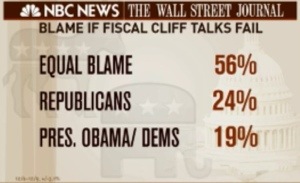After hearing Governor Romney muddy the waters in the last debate I was really frustrated to find out that he muddied the waters even more than I had initially though… He said that we should just throw all of the studies out about the campaigns approaches to taxes and spending because we all have different studies making opposing arguments, and it’s just a push, we can’t know which one is right… Well, as it turns out, the studies that Romney was referring to ended up being Blog Posts (and yes I realize this is a blog post – I just don’t claim that it could go toe-to-toe with Obama’s actual study). If you want to read more about Romney’s “tax study” problem click here (The truth about Romney’s ‘six studies’). Other than that I think that this Rattner article is really interesting and I encourage you to read it.
Cheers,
Grady

The Radical Is Romney, Not Ryan
OCTOBER 15, 2012
Originally published in the New York Times
MITT ROMNEY, moderate. That earnestly sought post-debate public image contrasts starkly with Mr. Romney’s actual positions on many issues, especially the future trajectory of government spending.
Clinging tightly to a studied vagueness when pressed for unpopular specifics, Mr. Romney has put forward a budget framework that would not eviscerate Medicare and Social Security, as is commonly believed, but would slash everything else that’s not defense.
President Obama should use Tuesday night’s debate to press Mr. Romney to defend — or even just explain — these proposed cuts, which would be far more draconian than those advanced by his running mate, Paul D. Ryan. Mr. Ryan is widely viewed as the real fiscal hawk, but in key areas, his views on spending levels are actually closer to Mr. Obama’s than to Mr. Romney’s.
All in all, Mr. Ryan and Mr. Romney do see the future similarly — over the next decade, they want government spending reduced to about 20 percent of the United States’ gross domestic product, below the historic average of around 21 percent. (Recognizing that an aging society costs more, Mr. Obama proposes to hold spending at its current level, 23 percent.)
These differences may not sound like much, but by 2023, each percentage point of G.D.P. could represent about $250 billion in federal spending.
Though Vice President Joseph R. Biden Jr. brought it up repeatedly in his debate with Mr. Ryan on Thursday, Social Security — the single biggest government expenditure — is not on the battlefield. Mr. Romney and Mr. Ryan have each backed away from threats to privatize or cut it and now propose to spend the same amount on it as Mr. Obama would in the coming decade.
That’s not the case with Medicare. Mr. Obama and Mr. Ryan have each endorsed similar packages of about $950 billion of savings over 10 years, while Mr. Romney has opposed any reduction, making it virtually impossible for him to achieve his overall spending limit.
To be sure, Mr. Romney and Mr. Ryan agree — and differ with Mr. Obama — on many matters, like how to contain the growth in Medicare spending and whether to raise the eligibility age.
And they part company from Mr. Obama when it comes to the Affordable Care Act (the Republicans demand its repeal, claiming it would save about $1.6 trillion) and Medicaid (Messrs. Romney and Ryan want it turned over to the states and want to cut nearly 20 percent from Mr. Obama’s planned levels).
But with respect to nearly half the budget, Mr. Romney and Mr. Ryan widely diverge from each other.
Mr. Romney is calling for a huge increase in defense spending — roughly $2 trillion more over the next decade than Mr. Ryan wants to spend, which is only $400 billion above Mr. Obama’s budget — even though the military is not asking for such an increase. Such an increase would force giant reductions, about 40 percent, in everything that’s left.
“Everything else” isn’t some catchall of small items, like feeding Big Bird. We’re talking about a vast array of programs including civilian and military pensions, food stamps, unemployment and disability compensation, the earned income and child tax credits, family support and nutrition, K-12 education, transportation, public safety and disaster relief. And on and on.
All told, Mr. Romney would allocate $6.9 trillion for these items, compared with the $9.3 trillion proposed by his own running mate (and Mr. Obama’s $12 trillion, which itself represents a 9 percent reduction from current levels, after adjusting for inflation).
No doubt some of what is buried within “other mandatory and nondefense discretionary spending” can be eliminated. Perhaps Americans won’t miss a few national parks or the space program.
But also nestled within this category are critical outlays for investments in infrastructure and research.
Eating the seed corn is never advisable, yet that’s what Washington is already doing. The share of spending on infrastructure (roads, airports, dams and the like) fell from 2 percent of G.D.P. in 1971 to 1 percent in 2010.
More — not less — government money needs to be invested in these kinds of growth-generating projects (not to mention education and training).
I recognize that in the real world, cuts on the scale envisioned by Mr. Romney will prove politically untenable, which would force a President Romney to rethink his agenda.
But as a statement of intent, it’s Mr. Romney — not Mr. Ryan — who has produced the budget that would more dramatically reduce the services offered by government, and in ways that would shock and outrage most Americans. We can only hope that Mr. Obama will draw those contrasts clearly in the debate.
via The Radical Is Romney, Not Ryan.
Home | Bio | Articles | Media | Blog | Overhaul | Contact | Media Requests
© Steven Rattner 2012

















